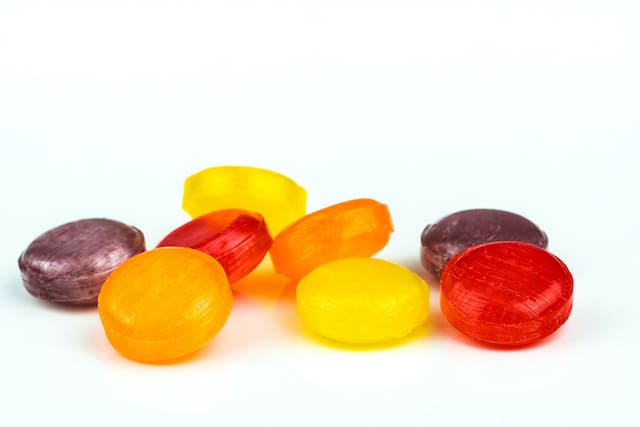At some point and time, everyone experiences a case of “dry mouth”. Dehydration and anxiety are common and often, short term causes of dry mouth. While chemotherapy, certain medications, diabetes, autoimmune diseases, and oral infections are associated with more chronic cases. If left untreated, dry mouth can affect your oral health. Thankfully, relief can be found with lozenges. If you or a loved one struggles with dry mouth issues, here are some thoughts on lozenges and other tips that can help.

How Do Dry Mouth Lozenges Work?
Lozenges for Dry Mouth
Sucking on lozenges helps stimulate saliva, which is good for your teeth, gums, and general oral health. When choosing a dry mouth lozenge, select a sugar-free product. Xylitol is found in many sugar-free products, stimulates salivary flow, and reduces bacteria that can overgrow a dry mouth. Xylitol also helps to minimise the risk of tooth decay. Sucking on the lozenge works your chewing muscles that also stimulate saliva flow, as does the lozenge flavour. You’ll have to use your chewing muscles to suck on the lozenges. This action can boost saliva flow.
Other Ways to Stimulate Saliva Flow
According to the Indian Dental Association, hard candies treats stimulate saliva, which prevents dry mouth. Chewing a sugar-free gum can actually prevent cavities, not only because it helps to dislodge food particles from the teeth, but also because it increases saliva. Saliva works to neutralise the acids of the mouth and prevent tooth decay. Chewing sugar-free gum containing the artificial sweeteners sorbitol and xylitol reduces cavities. The chewing motion stimulates the flow of saliva, which helps cleanse the teeth. And apart from the IDA's suggestions drinking more water, sucking on ice chips, and maintaining healthy oral hygiene habits are all good too.
Things to Avoid for Dry Mouth
Here are some things that may increase dry mouth problems:
- Avoid salty, dry, and sugary foods and drinks
- Limit alcohol and caffeine intake
- Quitting smoking
There are many causes of dry mouth. Talk with your dentist or physician to help identify what may be causing your dry mouth. Lozenges and other solutions can help. Make sure to continue oral health appointments with your dental professional.
This article is intended to promote understanding of and knowledge about general oral health topics. It is not intended to be a substitute for professional advice, diagnosis or treatment. Always seek the advice of your dentist or other qualified healthcare provider with any questions you may have regarding a medical condition or treatment.





